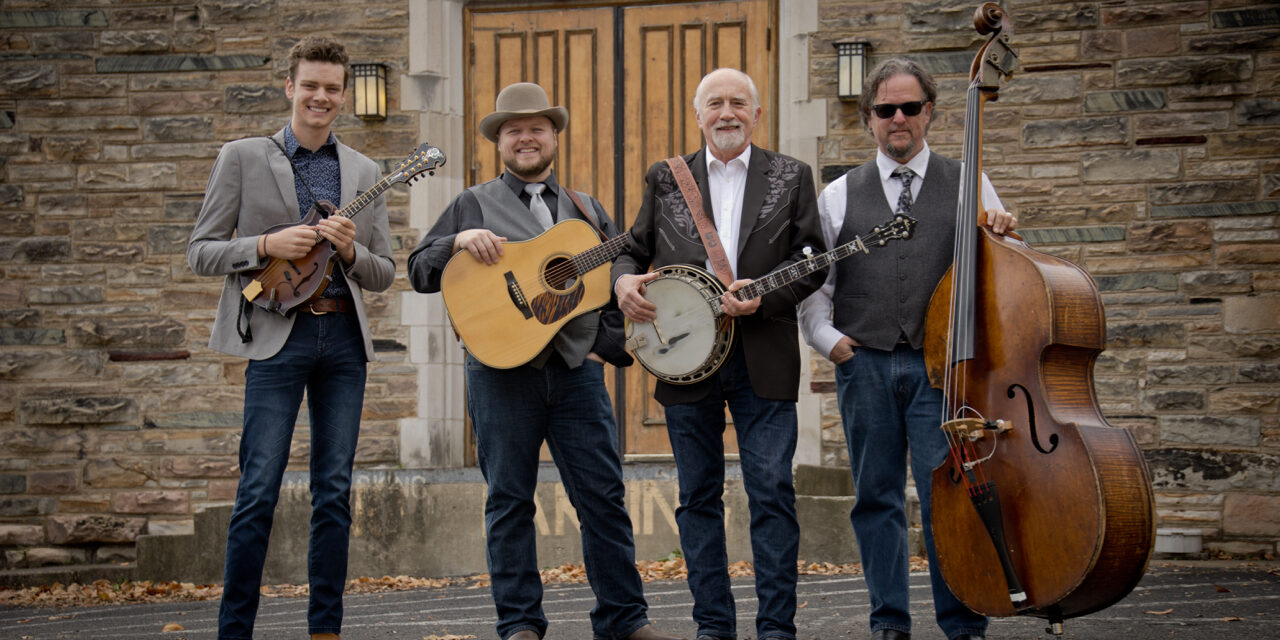Chicago has a rich history of fostering country and bluegrass music. Home-grown band, Special Consensus, joined by guest artists Becky Buller, Alison Brown, Michael Cleveland, Rob Ickes, Robbie Fulks, Patrick McAvinue, Ned Luberecki, and Mike Barnett, celebrates the history of bluegrass music in Chicago and the band’s 45th anniversary in their new album, Chicago Barn Dance.
Before Nashville had the Grand Ole Opry, Chicago had one of the most popular country music radio shows in the country, WLS’s National Barn Dance. The WLS call letters stood for “World Largest Store” and the station was started by Sears, Roebuck & Co. to connect with a rural audience for their mail-order products.
The Barn Dance was first broadcast in 1924 and was billed as “the most witching, sumptuous, glorious, ear-gladdening and impressive show ever heard.” It was a Saturday-night broadcast of jokes, country music, and stories. By the early 1930’s, the show filled the 1200 seat 8th Street Theatre for two separate 2-hour shows. In 1933, NBC began broadcasting parts of the Barn Dance coast-to-coast. The Barn Dance featured many early country stars, including Gene Autry, Patsy Montana, Hank Williams, and the Monroe Brothers.
Bill Monroe headed north from Kentucky to northwest Indiana in 1929. While Monroe was working at the Sinclair Oil Refinery in East Chicago with his brothers, Charlie and Birch, they made a name for themselves performing at dances and on local radio stations. After being discovered at a square dance, the brothers were dancers for WLS’s Barn Dance Tour throughout the northern Midwest for two years, starting in 1932. They eventually were invited to perform as musicians on the stage at WLS and also performed as a vaudeville act at several Chicago theaters. Through these Chicago performances, Bill and Charlie were offered sponsorship by a medicine company called Texas Crystals and left Chicago to begin their first gig as a duet act at a radio station in Omaha.
In 1945, Bill Monroe and his new band, the Blue Grass Boys, returned to Chicago for their first recording session together at the CBS Studio in the Wrigley Building. They recorded nine, now classic, songs in Chicago: “Rocky Road Blues,” “Kentucky Waltz,” “True Life Blues,” “Nobody Loves Me,” “Goodbye Old Pal,” “Footprints in the Snow,” “I’ll Have A New Life,” “Blue Grass Special” and “Come Back to Me in My Dreams.“
The University of Chicago Folk Festival was launched in 1961 as another home for country, bluegrass, and folk music in the city. The Festival hosted such greats as Ralph and Carter Stanley (with Larry Sparks), The New Lost City Ramblers, Elizabeth Cotton, Bill Monroe and the Blue Grass Boys, and Doc Watson.
It was at the U of C Folk Festival in 1973 that graduate student and Chicago native, Greg Cahill, met Marc Edelstein at a bluegrass jam. The two played at house parties and eventually founded Special Consensus in 1975. To celebrate the band’s 45th anniversary and home city, Chicago Barn Dance features songs written by Chicago natives (like Steve Goodman’s “City of New Orleans”), written about Chicago (“East Chicago Blues”), and iconic Chicago songs done in a bluegrass style (Sinatra’s “My Kind of Town”).
LISTEN to “Chicago Barn Dance,” the title track from Special Consensus’ 45th anniversary album:
Ben Wright of Henhouse Prowlers recently sat down with Greg Cahill to talk about the new album and also about the history of Bluegrass in Chicago, including the WLS National Barn Dance:

